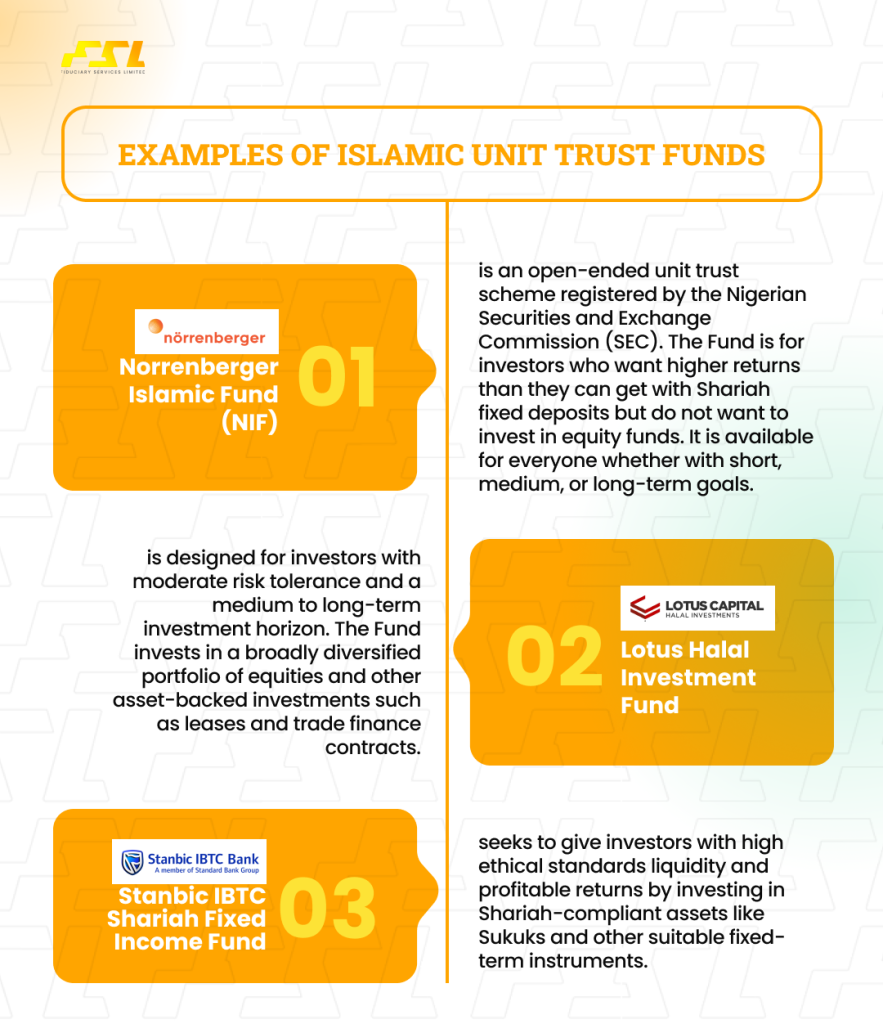
Welcome to another edition of Malaadhu Thar’wah and our discussions on “Wealth Planning for Islamic Faithfuls”.
We will discuss some of the Shariah-compliant options available when investing with examples in the Nigerian investment market. First, we take cognisance of the fact that Islamic faithfuls are not allowed to invest in just any venture or scheme but are expected to adhere to Shariah principles (Halal investments) when doing so.
Islamic Unit Trust
An Islamic unit trust is made up of a common fund where investors make investments and can benefit from managing risk and exposure to one or a small number of equities into different (usually and preferably halal) stocks and portfolios while abiding by the laws, regulations, and principles of Shariah. As expected, and unlike conventional unit trusts, Islamic unit trust prohibits non-Shariah-compliant ventures, including those involving alcohol, gambling, tobacco, non-halal food products, interest-based lending, conventional insurance, military weapons, and ammunition. Financial instruments that are available include Islamic money market instruments, non-interest bonds (Sukuk), Islamic deposits, and Shariah-approved stocks.
Stocks of companies considered to be non-halal are exempted and on occasions when there are company profits that are made from non-Shariah compliant sources, like interest earned on bank accounts, the profits are purified by donating to charitable organisations.
To ensure compliance with the principles of Shariah, only experts in Islamic finance are appointed to the Shariah Board of Islamic Unit Trust schemes. Islamic unit trust fund must also carry out periodic Shariah audit.
There are some regions where the term “unit trust” is used interchangeably with “mutual fund”. Kindly note that Islamic trust fund could also be a mutual fund, however, such a fund is established under a trust deed with the investor(s) as the beneficiary.
There are 2 types of Islamic unit funds: open-ended and close-ended..
Open-ended Fund
In this type of fund, there is no limit to the number of units. Units are created on a need basis. When an investor purchases units, more units are created in the trust and when an investor redeems or withdraws their investment, the units are canceled or assets are sold to cover the investment withdrawn or redeemed. The open-ended fund allows for more contributions and withdrawals from the fund.
Close-ended Fund
Here, there are a limited number of units. The intent is that funds are held until the maturity date by investors.

You may find this helpful
The second edition of our webinar series with the theme: Conversations on Wealth Management: Trends and Dynamics Shaping the Lives and Legacies of the Affluent and High Net-worth Individuals (HNIs) was held on 10th August, 2023.
The discussions centered on issues arising with respect to Family Dynamics, Philanthropy, Sustainability, mental Incapacity, and Digital assets planning for affluent and wealthy families.
We have provided this report as a synthesis of insights and learnings from our panel of experts. Enjoy reading!
We would continue examining Islamic wealth planning for Islamic faithfuls in subsequent editions of this Newsletter.
Remember you can secure your legacy according to Islamic principles with our expert estate planning services.
Get in touch with one of our professionals today by sending a mail to contact@fiduciaryservicesltd.com.



